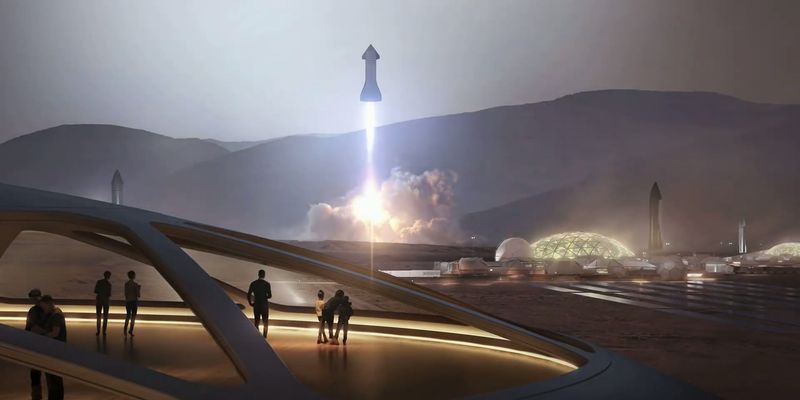Elon Musk’s recent statement that humans could set foot on Mars within four years has stirred both skepticism and curiosity. SpaceX, the company he leads, is aiming for its first uncrewed Starship mission to Mars in two years, with a crewed mission to follow two years after that. However, this ambitious timeline depends heavily on overcoming numerous technological and logistical challenges, from perfecting the Starship launch system to developing life-support infrastructure on the Red Planet.
SpaceX, primarily a transportation company, isn’t planning to build a Mars base itself. Instead, Musk envisions other entities stepping in to create the necessary infrastructure for a human colony. This plan would require extensive collaboration and funding from NASA, international agencies, and private investors. The optimistic timeline also clashes with current realities: SpaceX has yet to conduct a successful Starship orbital flight, and the ideal launch windows for Mars occur only every 26 months due to orbital mechanics.
Yet, there are reasons to take Musk’s claim seriously, despite the skepticism. The rapid progress SpaceX has made with reusable rockets and the successful launch of its Starlink satellites indicate the company’s ability to tackle complex aerospace challenges. SpaceX’s Starship, designed for deep-space missions, is a significant leap in capability, with plans for both the spacecraft and its massive Super Heavy booster to be fully reusable. This could dramatically reduce the cost of launching humans and cargo to Mars, turning science fiction into a feasible reality.
Moreover, Musk’s bold declarations have a strategic purpose beyond mere bravado—they capture public imagination, attract top talent, and draw in investors. As Harvard Business School’s Matthew Weinzierl points out, SpaceX thrives on transforming what seems impossible into achievable market success. By setting daring goals, Musk not only positions SpaceX as a pioneer in space exploration but also accelerates global interest in the possibilities of a multi-planetary future.
In the end, even if Musk’s four-year timeline for Mars proves to be overly optimistic, his vision has already achieved one critical objective: reigniting humanity’s desire to explore the final frontier. His proclamations may seem outlandish, but they have sparked a much-needed dialogue about our future as a species—should we stay Earth-bound, or aim for the stars? While some laugh, others see purpose, and the debate is far from over.
#Mars #Years #Elon #Musks #Vision #Faces #Doubts #Ignites #Hope #Humanitys #Future
